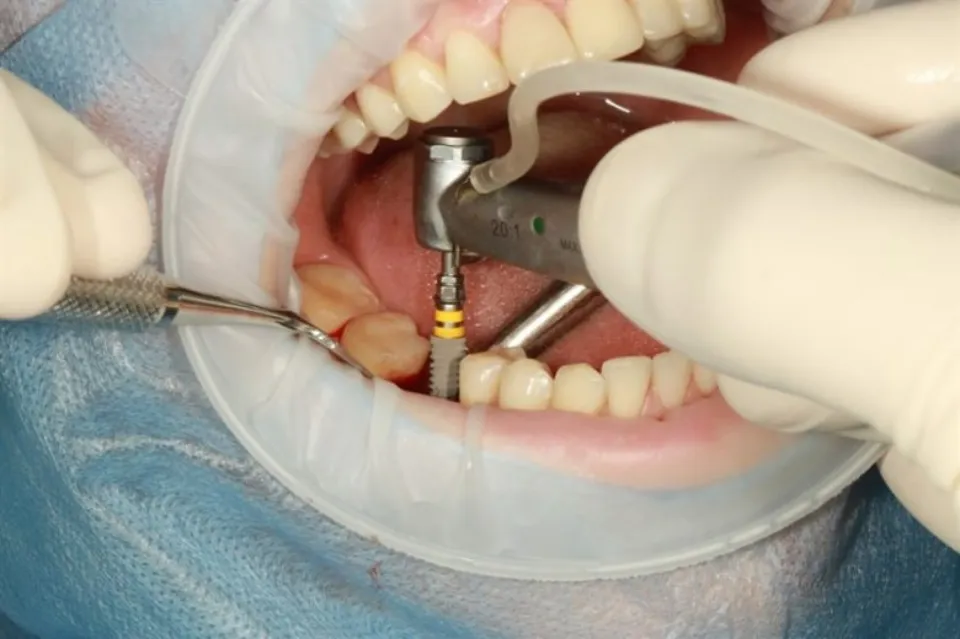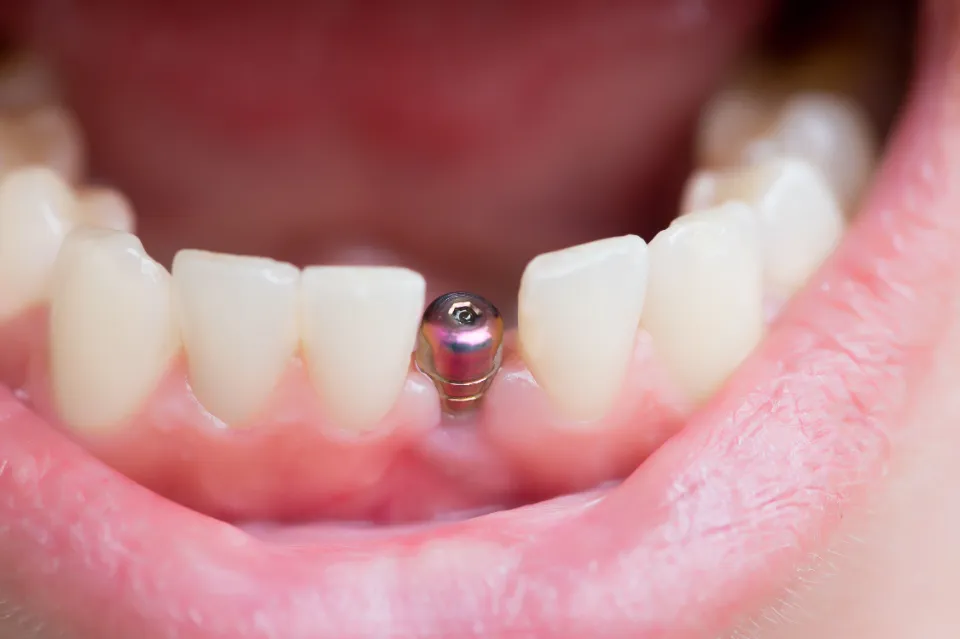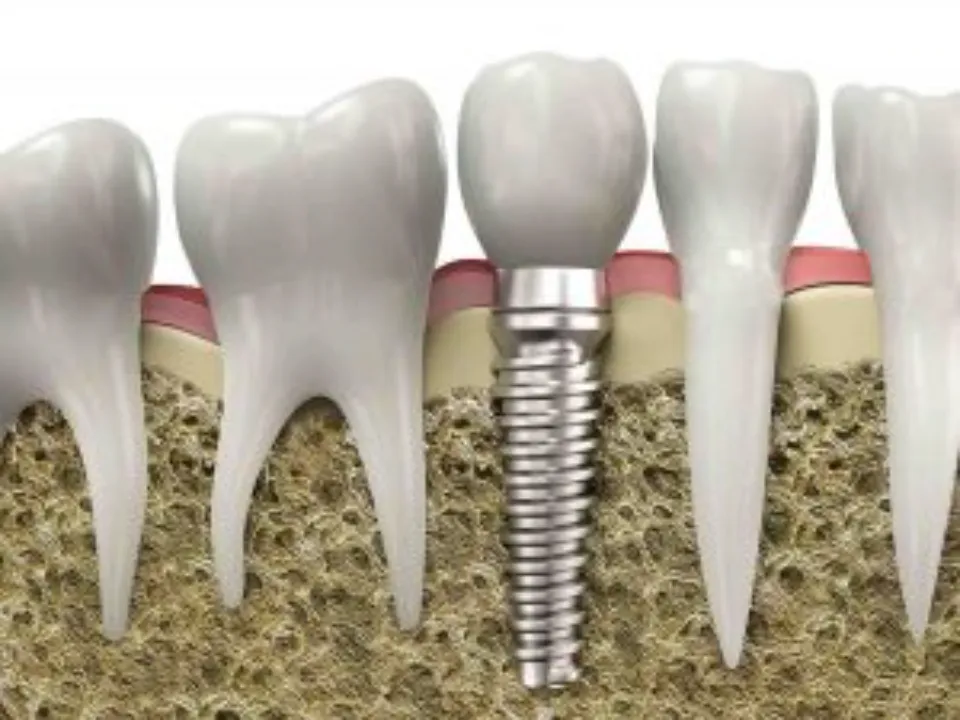
Pros and Cons of Dental Implants – Costs & Treatment
When a tooth is lost, simple tasks like eating, speaking, and even smiling can become uncomfortable. When teeth are lost, they can have an impact on your confidence and mood and, if untreated, can have long-term effects.
Although dental implants are not the most affordable option for replacing missing teeth, they are a long-term and possibly permanent solution. They typically cost more than alternative forms of treatment.
Pros of Dental Implants

Dental Implants Look and Feel Like Natural Teeth
The appearance of dental implants is similar to natural teeth. After your implant has been installed, your replacement tooth and your natural teeth will look so similar that you hardly will be able to tell the difference.
Implants will not only feel identical to your natural teeth, but also look natural. Because it will be firmly anchored in your jaw, the tooth implant will feel just as strong and stable as your natural teeth. As usual, you’ll be able to eat and converse.
Dental Implants Can Last a Lifetime
An effective method of replacing missing teeth is with implants. The implants can last a lifetime with proper care, but you might need to replace the crowns every 10–15 years.
Maintain a healthy lifestyle and good dental hygiene as much as you can. Avoid smoking and consuming sugary foods like candy, soda, and junk food. In addition to routine dental checkups, you should brush your teeth and gum line twice a day.
The likelihood that your dental implants will last for many years will increase if you take good care of them.
Eat and Chew With Ease
Eating and chewing won’t really feel any different with implants, unlike with dentures and bridges. This is so that they feel almost exactly like your natural teeth.
Read More: How Long Will Dentures Last
There are no restrictions on what you can eat following the dental implant procedure. You can eat and drink without worrying whether you prefer chewy foods, crunchy snacks, or hot or cold beverages; just be careful not to consume too many sugary treats.
Dental Implants Prevent Bone Loss
Your teeth’s roots promote the development of the jaw bone. The area of bone around the missing tooth can begin to deteriorate and disintegrate when you lose a tooth. Periodontitis is the term for this.
Similar to how natural teeth are fixed in your jaw, dental implants do the same. Dental implants prevent bone loss because the implant’s screw thread functions like the root of a natural tooth, keeping your jaw bone strong.
Implants Are Easy to Look After
Implants require maintenance if you want them to last a lifetime, but that doesn’t mean it will be challenging.
As with real teeth, they require daily brushing, routine checkups, and a nutritious diet. You should take care of them in the same way.
Implant Dentistry is Cost-Effective
Although dental implants aren’t the most affordable way to replace missing teeth, they are incredibly cost-effective as a long-term, even permanent, solution.
You won’t have to pay for your implants again, at least not for a very long time, once they have been fitted.
For many years of comfort and confidence, there is only one upfront cost. In no time at all, you’ll forget that you ever had a missing tooth.
Cons of Dental Implants
Not Suitable for Everyone
All of your teeth can be replaced with dental implants, but not everyone is a candidate for the procedure. Reasons why you may not be eligible can include:
- Your jaw is not large enough to support an implant
- You have a health condition that affects bone healing
- You have poor oral health
- You smoke
The risk of implant failure can be increased by smoking and oral health issues like gum disease. You might be considered for a future appointment if you make a commitment to enhance your oral health or give up smoking.
Read More: Smoking Lavender Pros And Cons
If you decide to undergo a procedure like a bone graft or sinus lift to increase the density of your jawbone, you might still be able to get implants even if you have a small jaw. Full arch implants, which are implanted at an angle and can replace all of your upper or lower teeth, may work well for smaller jaws.
Multiple Appointments
The typical dental implant process entails a series of appointments spread out over a time frame of up to six months. The wait is necessary to give the jaw bone time to heal around the implant and hold it firmly in place, which might make it unappealing if you want a quick fix for your smile.
You will be given a temporary crown or bridge to wear during this time. Your final crown, bridge, or abutments for implant-retained dentures can be inserted once your dentist has determined that the implant has completely bonded with your jaw.
Depending on your implant treatment plan and the rate at which your bone grows, there may be exceptions to this timeline. Notably, since full arch implants don’t have to bond to the jaw, the procedure can be finished in two or more visits.
Cost More Than the Alternatives
Even though the ongoing costs are lower, dental implants initially cost more than a bridge or a set of dentures. For the majority of patients, implant surgery is a one-time expense; the only component that typically requires replacement after a few years is the prosthetic tooth that is attached to the implant. Comparatively speaking, bridgework and dentures typically require more frequent replacement.
You might be able to use your health fund to claim a portion of the cost of your treatment depending on the type of insurance you have. In order to spread the cost over a number of installments, you can also inquire with your dental office about any payment plans they may offer.
Require Surgery
Dental implants might not be for you if you don’t like the idea of surgery because placing an implant necessitates a number of minor operations on the gum and jaw. You’ll understand what to anticipate during the procedure and the healing phase if your dentist walks you through each step.
Your mouth will be numbed with local anesthetic so that you won’t experience any discomfort during the implant procedure. If you’re anxious, talk to your dentist about other forms of sedation and alternative techniques for controlling dental phobia. A general anesthetic might be necessary if you’re getting multiple implants or extractions done at once.
Are Dental Implants Right for Me?
Whether dental implants are right for you depends on your personal preferences. Your dentist will make sure you are aware of all your tooth replacement options so you can make the best choice. Alternatives to dental implants include:
- Dental bridges are a prosthetic tooth or teeth that can be used to close gaps in your smile. (Read More: Can Braces Fix Gaps in Teeth)Depending on where they are placed in the mouth, crowns or clasps are used to secure the bridge to the neighboring teeth.
- Dentures are removable false teeth that can be removed to replace one tooth, several teeth, or all of your upper or lower teeth. A dentist will fit your dentures specifically, and they should be cleaned every day.
At your initial implant consultation, you can learn everything there is to know about dental implants and other tooth replacement procedures.

Are Teeth Implants Worth It?
Consider the advantages to your health and self-esteem when deciding whether dental implants are worthwhile. For many patients, however, they may be unaffordable due to their high cost.
Even if you can’t afford dental implants, replacing your teeth is still important, and a good set of dentures or a bridge is unquestionably preferable to doing nothing.
Read More: Pros and Cons of Clear Choice Dental Implants
Are There Any Reasons Not to Get Dental Implants?
Dental implants may have a number of benefits over alternative restoration options, but they also have some disadvantages. The reasons why you might not want to get dental implants, even if you can afford them, are explained in the following video.
Conclusion
Like any tooth-replacement option, dental implants have benefits and drawbacks. The most notable advantages of implants are that they help maintain a strong jawbone, stop your facial muscles from sagging inward, and let you talk and chew like you normally would.
In addition, the screws are built to last forever!
Dental implants’ drawbacks include their high price, potential for extensive surgery, and prolonged hospital stays.
Ask your dentist for an estimate of all costs so that you can decide if this is the best course of treatment for you.
FAQs
What Are the Disadvantages of Teeth Implants?
Dental implants come with a number of risks and potential issues, including infection, harm to neighboring teeth, sluggish bone healing, nerve damage, protracted bleeding, fractured jaws, and more. Dental implants might be the best option for you if you’re willing to take these risks.
Are Dental Implants Worth Doing?
They might last you the rest of your life if you take good care of them, saving you from having to replace individual parts or deal with dentures’ complicated maintenance. We observe that many patients are enamored with their dependability and the numerous doors they open to a more relaxed lifestyle.
Are Dental Implants Good for Life?
A dental implant typically lasts between 10 and 30 years. This implies that the likelihood of an implant lasting the rest of your life depends on your age at the time of implant. No other tooth replacement option has that kind of durability.





Average Rating